Ali Baba Goes to Town
Brief Synopsis
Cast & Crew
David Butler
Eddie Cantor
Tony Martin
Roland Young
June Lang
Louise Hovick
Film Details
Technical Specs

Synopsis
Aloysius "Al" Babson, a star-struck autograph hound on his vacation to Hollywood, falls out of a boxcar in the desert. Startled to see a horde of Arab riders heading toward him, he runs into an Arabian village, where some riders fall over him. He then awakens in the 20th Century-Fox Film Corp. first-aid room to learn that he has ruined a take in their desert picture, Ali Baba . When a company man offers him money to sign a waiver releasing the company from damages, his nurse Dinah cautions him not to sign, but when he is offered the opportunity to be an extra and to collect autographs, Al excitedly agrees. Dinah gives Al some pain-killing pills and instructs him to take two at twelve o'clock. On the set, Al plays one of the forty thieves hidden in large jars who are to kill Abdullah, the sultan, for Prince Musah, who plans to abduct the sultan's daughter, Princess Miriam. He volunteers to play the thief who remains faithful to the sultan, but when he learns that it is two o'clock, he mistakenly thinks that Dinah told him to take twelve pills at two and takes the large dosage. In his subsequent dream, Al finds himself in Bagdad in the year 937. He is about to be put to death, but when he reveals that his name is Al Babson, he is hailed as the great "Ali Baba's son" and invited to lunch at Sultan Abdullah's palace. In response to the starving people outside the gates, Al convinces Abdullah to invite them to lunch also, thus quelling the rebellion. Al is soon made prime minister, and he instigates a number of works projects based on American New Deal projects. When Al suggests that Abdullah disband the army, Musah plans, with the connivance of Sultana, one of the sultan's 365 wives, to take over the kingdom, capture the princess, who has rebuked his entreaties, and serve Al's head on a platter. Meanwhile, Al has met and fallen in love with Deenah, who is the daughter of Omar the Rug Maker, a magician, while Princess Miriam and the spokesman for the peasants, Yusuf, also fall in love. Because marriage between a princess and a commoner is not allowed, Al suggests that Abdullah resign as sultan and run for president. Despite Al's attempt to inaugurate a "Vote for Honest Abe" campaign on Abdullah's behalf, the people elect Al president, which leads Abdullah to sentence him to be boiled in oil. Al escapes and, dressed as a veiled woman, enters Musah's camp. Greatly attracted to Al, Musah has "her" dance for him, whereupon Al secures Musah to a post with his veils and escapes to Deenah's house, where Omar is trying out commands to make his carpet rise. Al suggests the word "inflation," and the carpet takes off over Musah's approaching army with Al aboard. He scatters the army with a burning rope, but Musah climbs up, and they fight as the carpet burns. Al knocks Musah off, but then falls off himself. After Al is rudely awakened from his dream, the director of the film shoves him off the set. Later Al goes with Dinah and his autograph book to the front of the theater showing the film's premiere, where actor Tony Martin introduces celebrities, including Eddie Cantor, who is mobbed by autograph seekers. When Cantor waves to an excited Dinah, Al, upset, asks "What's he got that I haven't got?" and rolls his eyes around.

Director
David Butler
Cast

Eddie Cantor

Tony Martin

Roland Young
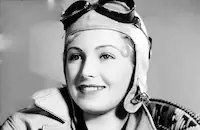
June Lang

Louise Hovick
Raymond Scott And His Quintet

John Carradine
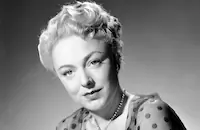
Virginia Field

Alan Dinehart

Douglas Dumbrille
Maurice Cass

Warren Hymer
Stanley Fields
Paul Hurst
Sam Hayes
Douglas Wood
Sidney Fields
Ferdinand Gottschalk

Charles Lane
Peters Sisters
Jen Le Gon
Pearl Twins

Victor Mclaglen

Phyllis Brooks
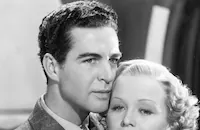
Michael Whalen

Douglas Fairbanks

Dolores Del Rio

The Ritz Brothers

Jack Haley

Ann Sothern
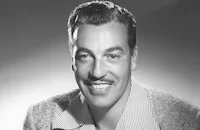
Cesar Romero

Sonja Henie

Tyrone Power

Shirley Temple
Gertrude Temple
George Temple
George Regas
Jim Pierce
John Rutherford
Herbert Ashley

Lee Cobb
John Picorri
James Burtis
Russ Powell

Eddie Collins
Jack Clifford
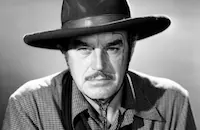
Harry Woods
Eddie Abdo
Francis Mcdonald

Marjorie Weaver
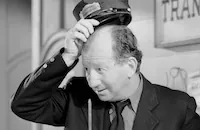
Hank Mann
Crew
Jack Adams
Dave Anderson
Don Anderson
Graham Baker
J. D. Bowman
Alfred Bruzlin
Chick Collins
G. L. Cooper
Walter Cooper
Nick Degenner
Bert Dennis
Eli Dunn
Ed. Ebele
Herbert Farjeon
Gene Fowler
William Fremdling
Bud Gaunt
James Girton
Milt Gold
Philo Goodfriend
Gordon Gordon
Mack Gordon
Charles Graham
Harold Hammack
Harry Harsha
Jamiel Hasson
Roger Heman
David Hempstead
Herschel
Bernard Herzbrun
Leo Houck
Eddie Jones
Gene Klum
Sammy Lee
Thomas Little
Robert Mack
Phil Mandella
Roy Martin
Bernard Mceveety
Eleanor Morra
Irene Morra
Emmet O'brien
Ernest Palmer
Helen Parker
Harry Revel
Harry Roberts
Daisy Robinson
Bob Rose
Ad Schaumer
Laurence Schwab
Raymond Scott
Louis Silvers
Arthur Stone
Gene Thomas
James Tinling
Gene Towne
Harry Tugend
C. W. Turner
Don Wakeling
Gwen Wakeling
Jack Yellen
Darryl F. Zanuck

Film Details
Technical Specs

Award Nominations
Best Dance Direction
Articles
Ali Baba Goes to Town
The first and, as it turned out, the only film made under that contract was Ali Baba Goes to Town (1937), another reworking of Mark Twain's novel, A Connecticut Yankee in King Arthur's Court. Cantor plays Al Babson, a star-struck movie fan who's headed for Hollywood to ogle stars when he stumbles upon a movie company making an Arabian Nights film in the desert. Working as an extra in the film, Al falls asleep and dreams his own Arabian fantasy. Al becomes an adviser to the Sultan, and institutes some New Deal-style reforms, and as in previous Cantor films, straightens out everyone's lives. The film also incorporates some swing musical numbers, and Cantor manages to do one of his usual blackface routines. The film is filled with Arabian clichés: harem girls, a sultan with multiple wives, an evil prince, and of course, a flying carpet. That "flying carpet" was the cause of an on-set tragedy. A prop maker and a grip were killed when the 1500 pound device fell on them while they were testing the electric hoist which controlled its movements. The accident delayed the completion of Ali Baba Goes to Town. According to publicity reports, the carpet also caused less serious injuries. Cantor suffered skinned knees, bruised kneecaps and strained ligaments from kneeling on the carpet while being buffeted by 50-miles per hour winds from a wind machine. The Hollywood stuntmen's union made him an honorary member for his efforts.
If the actress who plays Sultana is familiar, but her name is not, there's a reason. She's famed stripper Gypsy Rose Lee, credited as Louise Hovick (her real name) because studio bosses were nervous about listing her by her stage name. This was Lee's second film appearance. Several Fox stars appeared as themselves in a scene at the end of the film that takes place at a movie premiere, including Sonja Henie, Tyrone Power, and Shirley Temple. It was actually filmed at the premiere of Temple's film, Wee Willie Winkie (1937).
Critics found Cantor as appealing as ever in Ali Baba Goes to Town. Time magazine's critic wrote, "Haroun-al-Cantor's venture into political satire is tuneful, gay, imaginatively written, generously produced." A few days before the film went into nationwide release, a celebration was held marking Cantor's 25th anniversary as "a prime factor in American entertainment." But his days as a top movie star were over. He starred in only two more films, and made featured appearances in a few others. However, he remained a radio star in the 1940s, and hosted a television variety show in the 1950s.
Director: David Butler
Screenplay: Harry Tugend, Jack Yellen, story by Gene Towne, Graham Baker, and Gene Fowler
Cinematography: Ernest Palmer
Editor: Irene Morra
Costume Design: Gwen Wakeling, Herschel
Art Direction: Bernard Herzbrun
Music: Raymond Scott, songs by Mack Gordon and Harry Revel
Cast: Eddie Cantor (Ali Baba/Al Babson), Tony Martin (Yusuf/Himself), Roland Young (Sultan), June Lang (Princess Miriam), Louise Hovick (Sultana), John Carradine (Ishak/Broderick), Virginia Field (Dinah/Deenah), Alan Dinehart (Boland), Douglas Dumbrille (Prince Musah), Maurice Cass (Omar the Rug Maker).
BW-80m.
by Margarita Landazuri

Ali Baba Goes to Town
Quotes
Trivia
Eddie Cantor appears in the film's final sequence with Tony Martin.
Notes
The working title for this film was His Arabian Nights. More than eighteen months had passed between the release of Cantor's previous film and this one; during this time, he was one of the top radio stars. Cantor originally was going to make Saratoga Chips, from an unpublished play by Damon Runyon and Irving Caesar as his first film for Twentieth Century-Fox, which paid what was said to be the highest price to date for an unpublished play, $50,000. In 1938, the Ritz Brothers starred in Twentieth Century-Fox's Straight, Place and Show (see below) which was based on the play. According to a Hollywood Reporter news item, James Tinling was assigned to direct second unit material to speed up production. According to a New York Times article and a pressbook for the film, Ali Baba Goes to Town cost more than one million dollars to produce. The pressbook also notes that the "Old Baghdad" set was built on a twenty-five acre plot. The song "Twilight in Turkey" by Raymond Scott was published and recorded before its use in this film. According to a Hollywood Reporter news item, this film, along with Twentieth Century-Fox's Heidi (see below), introduced a new three-tone tinting process, which had been under development for the previous ten months. The process involved a combination of sepia, amber and copper tones for daylight, and blue, orange and copper for nighttime.
According to news items and information in the Twentieth Century-Fox Records of the Legal Department at the UCLA Theater Arts Library, on August 27, 1937, propmaker Philo Goodfriend and grip Harry Harsha were killed when the "magic carpet," weighing approximately 1,500 pounds, fell on them during a test. Goodfriend had been operating the electric hoist and Harsha was operating the movements of the suspended carpet. Two other property men, J. D. Bowman, who controlled the swaying of the carpet, and Nick DeGenner, who was riding the suspended carpet, were also injured. A coroner's jury, ruling that the deaths were accidental, was unable to fix blame for the accident. The accident delayed the completion of the film, which was scheduled to end 28 Aug. Cantor, who, according to studio publicity, suffered skinned knees, bruised knee caps and strained ligaments from kneeling on the coarse-weave carpet while wind machines blasted him with up to fifty miles per hour winds, was elected as an honorary member of the Hollywood Stunt Men, following completion of the film.
The scenes of the movie premiere at the end of the film were shot at the premiere of Twentieth Century-Fox's Wee Willie Winkie (see below) at the Carthay Circle Theatre on June 25, 1937. In addition to Eddie Cantor, other celebrities introduced at the premiere by Tony Martin were Victor McLaglen, Phyllis Brooks with Michael Whalen, Douglas Fairbanks, Dolores Del Rio, the Ritz Brothers, Jack Haley, Ann Sothern with Cesar Romero, Sonja Henie with Tyrone Power, John Carradine escorting June Lang and Louise Hovick, and Shirley Temple with her parents. According to Motion Picture Herald, the film was offered to exhibitors "in the platinum sepia process coming currently into favor." According to early billing sheets in the legal records, the Allan K. Foster Troupe of Girls and Horses were to perform a specialty act in the film, and Norman Willis, Hector Sarno and Harry Burns were cast as "Arabs." Their participation in the final film has not been confirmed.
Reviewers remarked on the satiric content of the film. New York Times, in an article about the film, noted the film's similarity to the 1931 Fox film A Connecticut Yankee, starring Will Rogers (see below) and called this film "the first instance in which a studio has leveled satire and ridicule at the [Franklin D. Roosevelt] Administration"; Motion Picture Herald noted, "Mr. Cantor personally attends to the chore of burlesquing Mr. Roosevelt's phrases and gestures of public address." Cantor and Twentieth Century-Fox were sued for $1,025,000 in damages by Andreas F. Michael, a writer who alleged that the film was plagiarized from material he submitted to the studio in 1936. According to information in the legal records, Twentieth Century-Fox won the case in 1939. In correspondence concerning the plagiarism charge, Gene Fowler acknowledged that the story grew out of an idea for writing a New Deal comedy similar in formula to A Connecticut Yankee and that he believed that Cantor suggested the idea for the scene in the beginning with the tramps. On October 26, 1937, three days before the film's national release, a celebration marking Eddie Cantor's twenty-fifth year as a "prime factor in American entertainment," according to Motion Picture Herald, was scheduled.

Miscellaneous Notes
Released in United States 1937
Released in United States 1937













